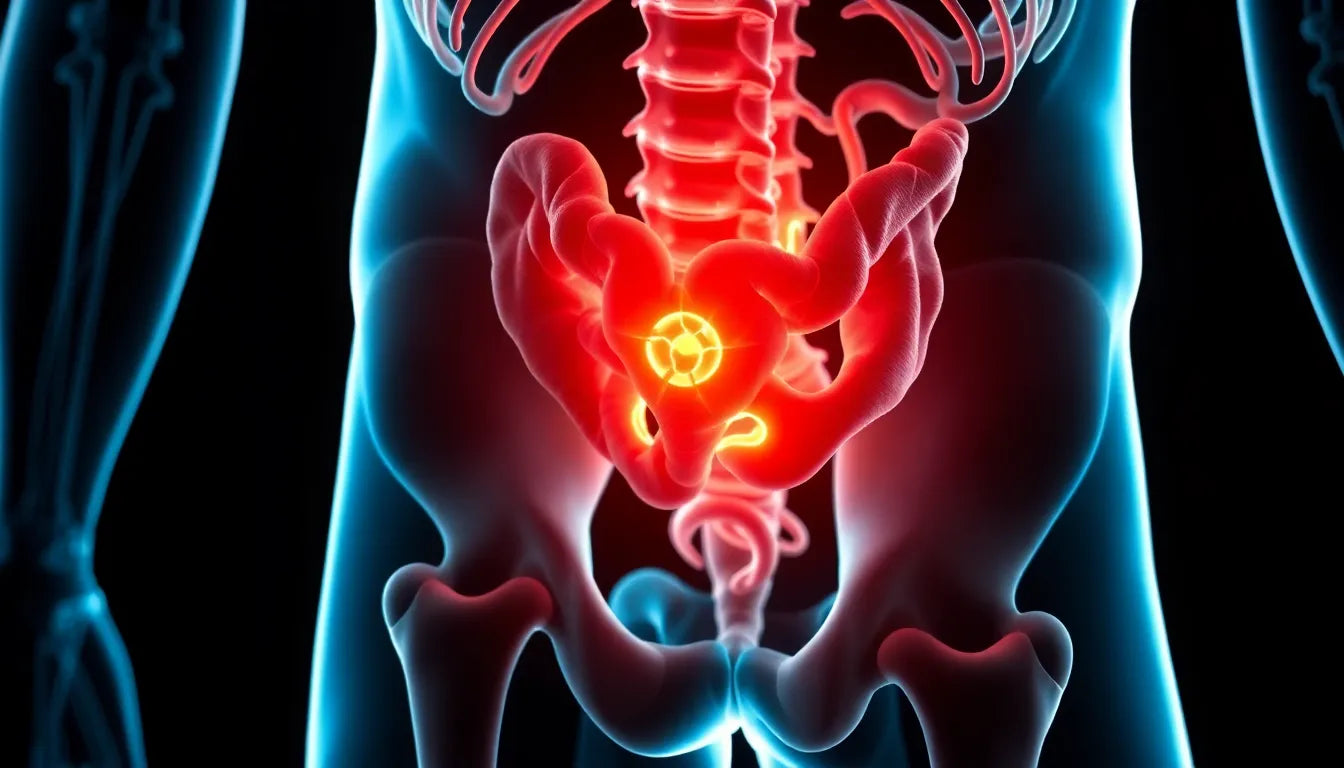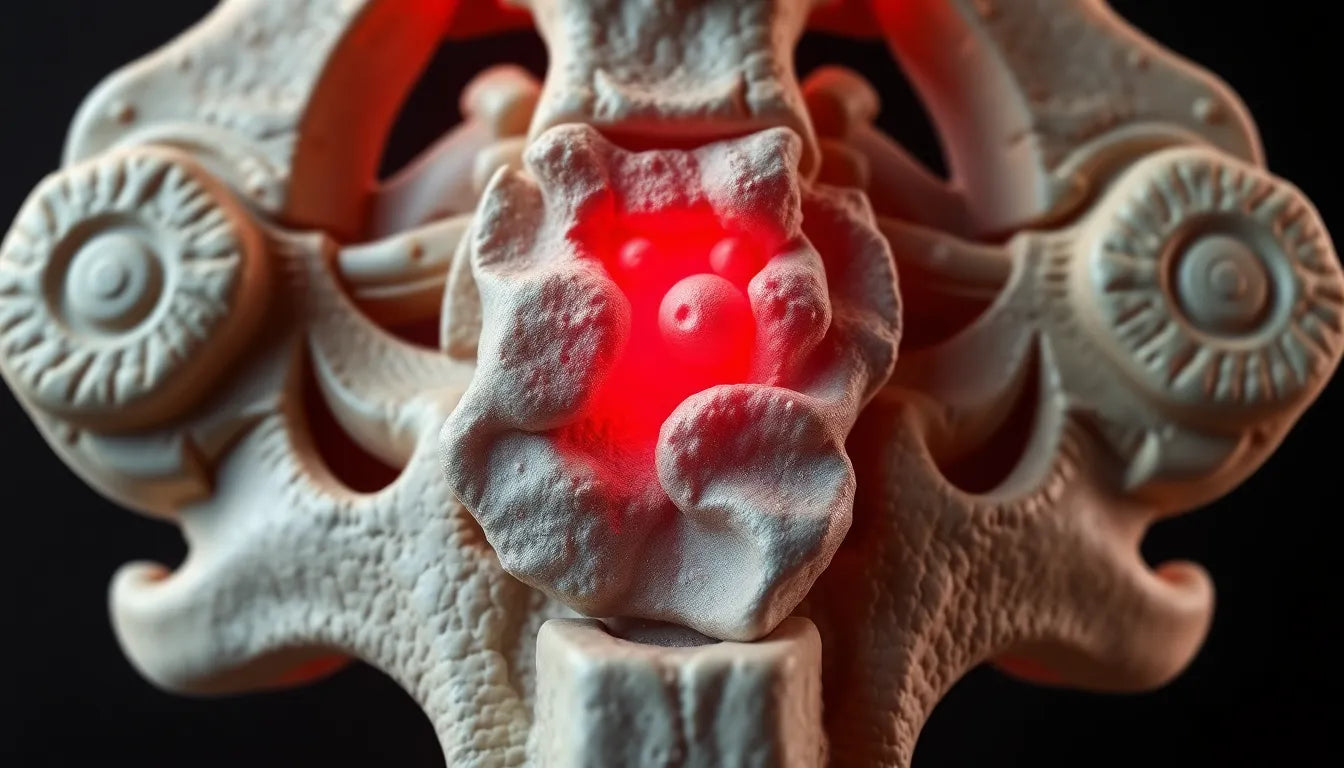A herniated disc, also known as a slipped or ruptured disc, occurs when the soft, jelly-like center of a spinal disc pushes through a crack in its tougher exterior casing. This condition is often associated with back pain and discomfort, but what might come as a surprise to many is its potential connection to bowel problems. Common bowel issues include constipation, diarrhea, and abdominal pain, which can significantly impact one's quality of life. Understanding the relationship between these seemingly unrelated conditions is essential for those experiencing unexplained gastrointestinal symptoms.
Understanding the link between herniated discs and bowel issues
The spine plays a crucial role in the body's nervous system, serving as a highway for nerve signals between the brain and the rest of the body. When a disc herniates, it can compress nearby nerves, potentially disrupting these signals. This nerve compression is particularly concerning when it affects nerves that control bowel function. As a result, individuals with herniated discs may experience bowel dysfunction, manifesting as constipation, diarrhea, or even difficulty controlling bowel movements.
Recognizing this connection is vital for patients who might otherwise overlook the root cause of their bowel issues. In some cases, a herniated disc can lead to more severe complications, such as cauda equina syndrome. This condition involves significant compression of the nerves at the lower end of the spinal cord, leading to serious symptoms like severe back pain, numbness in the groin area, and bowel or bladder dysfunction. If left untreated, cauda equina syndrome can result in permanent damage, making early detection and treatment critical.
The importance of awareness and timely intervention
For individuals experiencing unexplained bowel problems, understanding the potential link to a herniated disc is crucial. It not only aids in identifying the underlying cause but also highlights the importance of seeking appropriate medical evaluation. Early intervention can prevent the progression of symptoms and reduce the risk of complications, ensuring better health outcomes.
In the following sections, we will delve deeper into the mechanisms by which herniated discs can impact bowel function, explore the symptoms and diagnostic methods used to identify this link, and discuss the various treatment options available. By shedding light on this important topic, we aim to provide valuable insights for those affected and encourage proactive management of their health.
how herniated discs impact bowel function
When considering how a herniated disc can lead to bowel problems, it's essential to understand the role of nerve compression. The spinal cord and its branching nerves are responsible for transmitting signals that control various bodily functions, including bowel movements. When a disc herniates, it can impinge upon nerves in the lumbar region, particularly those that influence the pelvic organs and bowel function. This compression can disrupt normal signaling pathways, leading to issues such as constipation, diarrhea, or a combination of both.
The central nervous system, which includes the brain and spinal cord, plays a vital role in regulating bowel movements. When the nerves responsible for this regulation are compromised due to a herniated disc, it can result in a range of gastrointestinal symptoms. The severity of these symptoms often correlates with the extent of nerve compression, highlighting the importance of addressing the underlying spinal issue.
the risk of cauda equina syndrome
Among the most severe complications associated with herniated discs is cauda equina syndrome, a medical emergency that requires immediate attention. This condition occurs when the bundle of nerves at the base of the spinal cord, known as the cauda equina, is compressed. Symptoms can include severe lower back pain, numbness or tingling in the groin area, and significant bowel or bladder dysfunction. If left untreated, cauda equina syndrome can lead to permanent nerve damage, underscoring the need for urgent medical intervention.
Recognizing the symptoms of cauda equina syndrome is crucial for preventing irreversible damage. Individuals experiencing sudden changes in bowel or bladder habits, coupled with severe back pain or numbness, should seek medical evaluation promptly. Early diagnosis and treatment can significantly improve outcomes and prevent long-term complications.
identifying symptoms and diagnosing the issue
For individuals experiencing bowel problems potentially linked to a herniated disc, recognizing the symptoms is the first step towards diagnosis and treatment. Common symptoms include abdominal pain, changes in bowel habits such as constipation or diarrhea, and difficulty controlling bowel movements. These symptoms can vary in intensity and may be accompanied by back pain or discomfort.
To accurately diagnose the connection between a herniated disc and bowel issues, healthcare providers may employ several diagnostic tools. Magnetic resonance imaging (MRI) is often used to visualize the spine and detect any disc herniation or nerve compression. Myelograms, which involve injecting dye into the spinal canal, can also provide detailed images of the spinal cord and nerves. Additionally, neurological exams may be conducted to assess nerve function and pinpoint the source of symptoms.
treatment options for bowel issues related to herniated discs
Once a diagnosis is confirmed, treatment options can be tailored to address both the herniated disc and the associated bowel problems. Conservative treatments are often the first line of defense, focusing on relieving symptoms and improving quality of life. Physical therapy can be beneficial in strengthening the back muscles, enhancing flexibility, and reducing nerve compression. Pain management strategies, including medications and lifestyle modifications, may also be recommended to alleviate discomfort and inflammation.
In cases where conservative treatments prove insufficient, surgical interventions may be considered. Decompression surgery, which aims to relieve pressure on the affected nerves, can be effective in resolving both spinal and bowel symptoms. The success of surgical interventions largely depends on the severity of the condition and the timeliness of treatment.
Understanding the link between herniated discs and bowel issues is crucial for effective management and treatment. By recognizing the signs and seeking appropriate medical care, individuals can mitigate the impact of these conditions on their daily lives and improve their overall well-being.
Lifestyle adjustments for managing symptoms
For those dealing with bowel issues related to herniated discs, making certain lifestyle changes can be beneficial in managing symptoms and improving overall well-being. A high-fiber diet is one such adjustment that can ease constipation and promote regular bowel movements. Foods rich in fiber, such as fruits, vegetables, whole grains, and legumes, help maintain digestive health and prevent straining during bowel movements.
Regular exercise is another crucial component of managing symptoms. Engaging in low-impact activities like walking, swimming, or cycling can help maintain spinal health and reduce the risk of further disc issues. Exercise not only strengthens the muscles supporting the spine but also enhances overall physical fitness, contributing to better bowel function.
Prevention strategies for herniated discs and bowel issues
Preventing herniated discs and their associated bowel problems involves adopting certain practices that support spinal health. One key strategy is practicing proper lifting techniques. When lifting heavy objects, it's important to bend at the knees and keep the back straight to avoid unnecessary strain on the spine. Additionally, maintaining a healthy weight can reduce pressure on the spinal discs and lower the risk of herniation.
Ergonomic workplace setups are also essential for preventing spinal issues. Ensuring that workstations are set up to promote good posture can help prevent back strain and reduce the risk of disc herniation. Using chairs with proper lumbar support and positioning computer screens at eye level are simple adjustments that can make a significant difference.
Frequently Asked Questions
Can a herniated disc cause bowel problems?
Yes, a herniated disc can cause bowel problems, particularly if it leads to nerve compression or cauda equina syndrome. These conditions can disrupt the nerves that control bowel function, leading to symptoms such as constipation, diarrhea, or difficulty controlling bowel movements.
What are the warning signs of cauda equina syndrome?
The warning signs of cauda equina syndrome include severe lower back pain, numbness or tingling in the groin area, and significant loss of bowel or bladder control. This condition is a medical emergency and requires immediate attention to prevent permanent nerve damage.
How is a herniated disc diagnosed?
A herniated disc is typically diagnosed through imaging tests such as MRI scans, which provide detailed images of the spine and can reveal disc herniation and nerve compression. Neurological evaluations may also be conducted to assess nerve function and pinpoint the source of symptoms.
What are the treatment options for bowel issues caused by herniated discs?
Treatment options for bowel issues caused by herniated discs include conservative treatments like physical therapy and pain management. In more severe cases, surgical interventions such as decompression surgery may be necessary to relieve pressure on the affected nerves.
Can lifestyle changes help manage symptoms?
Yes, lifestyle changes can help manage symptoms. Incorporating dietary changes, such as a high-fiber diet, and engaging in regular exercise can alleviate symptoms and improve overall health. Additionally, practicing proper lifting techniques and maintaining an ergonomic workspace can help prevent further spinal issues.
Conclusion
Understanding the link between herniated discs and bowel issues is crucial for effective management and treatment. By recognizing the signs and seeking appropriate medical care, individuals can mitigate the impact of these conditions on their daily lives and improve their overall well-being. If you experience any symptoms, it is important to consult with a healthcare professional to explore the best treatment options available for your situation.


















